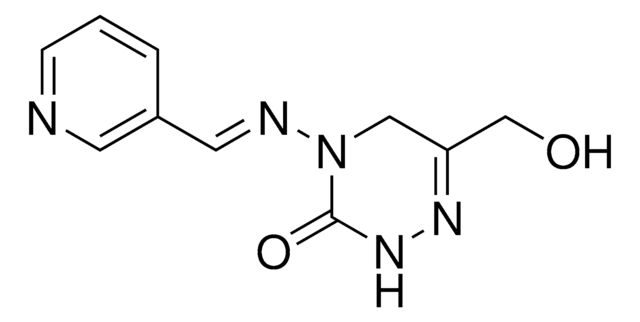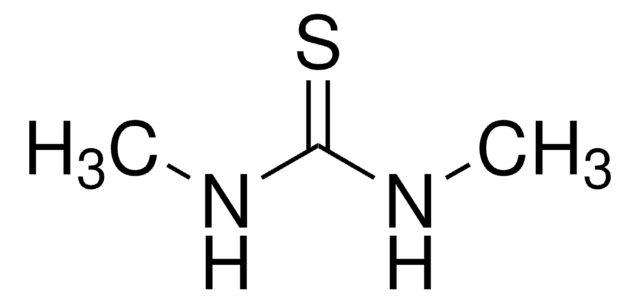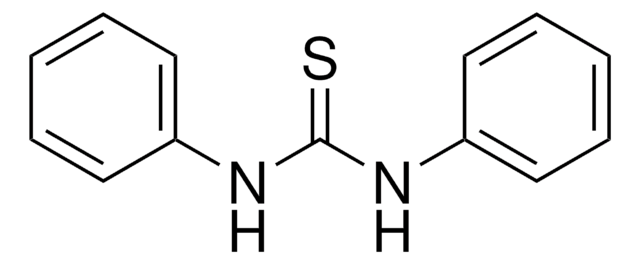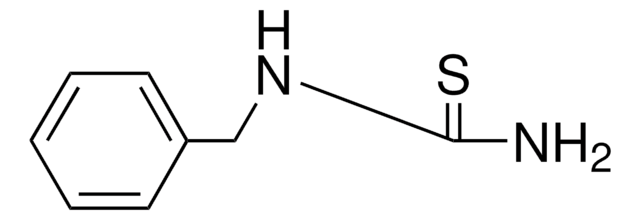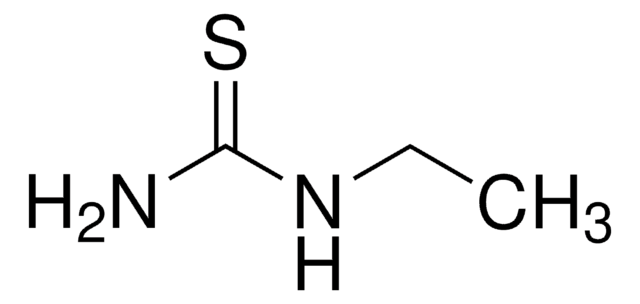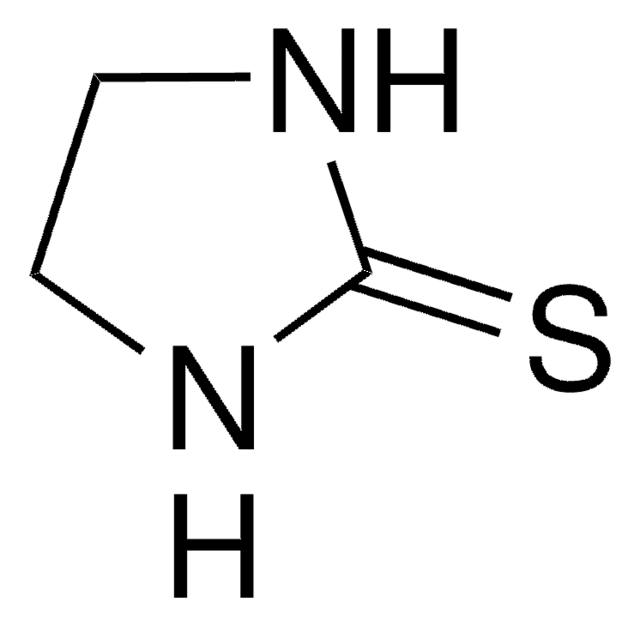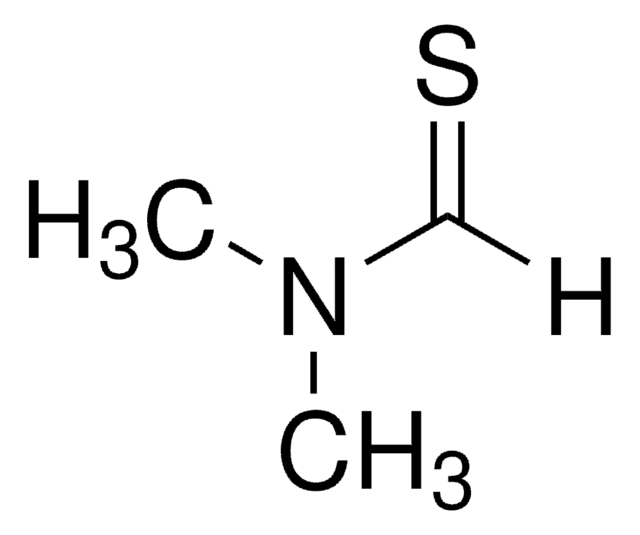All Photos(2)
About This Item
Linear Formula:
NH2CSNHCH3
CAS Number:
Molecular Weight:
90.15
Beilstein:
506162
EC Number:
MDL number:
UNSPSC Code:
12352100
PubChem Substance ID:
NACRES:
NA.22
Recommended Products
Quality Level
Assay
97%
form
crystals
mp
118-121 °C (lit.)
SMILES string
CNC(N)=S
InChI
1S/C2H6N2S/c1-4-2(3)5/h1H3,(H3,3,4,5)
InChI key
KQJQICVXLJTWQD-UHFFFAOYSA-N
Looking for similar products? Visit Product Comparison Guide
Signal Word
Danger
Hazard Statements
Precautionary Statements
Hazard Classifications
Acute Tox. 2 Oral - Aquatic Chronic 2
Storage Class Code
6.1A - Combustible acute toxic Cat. 1 and 2 / very toxic hazardous materials
WGK
WGK 3
Flash Point(F)
Not applicable
Flash Point(C)
Not applicable
Personal Protective Equipment
dust mask type N95 (US), Eyeshields, Gloves
Choose from one of the most recent versions:
Already Own This Product?
Find documentation for the products that you have recently purchased in the Document Library.
Customers Also Viewed
Shruti Sharma et al.
International journal of molecular sciences, 14(1), 255-272 (2013-01-25)
Congenital heart defects with increased pulmonary blood flow (PBF) result in pulmonary endothelial dysfunction that is dependent, at least in part, on decreases in nitric oxide (NO) signaling. Utilizing a lamb model with left-to-right shunting of blood and increased PBF
T S Plantinga et al.
Clinical pharmacology and therapeutics, 102(6), 1017-1024 (2017-05-10)
Agranulocytosis is a rare and serious adverse effect of antithyroid drugs, with unknown etiology. The present study aimed to uncover genetic susceptibility and underlying mechanisms of antithyroid drug-induced agranulocytosis (ATDAC). We studied two independent families with familial Graves' disease, of
Reza Heidari et al.
Scientia pharmaceutica, 80(4), 987-999 (2012-12-25)
Methimazole is used as an antithyroid drug to control the symptoms of hyperthyroidism and maintain patients in a euthyroid state. Administration of this drug is associated with agranulocytosis and hepatotoxicity, which are the two most significant adverse effects. The present
A R Jones et al.
Xenobiotica; the fate of foreign compounds in biological systems, 13(2), 73-79 (1983-02-01)
1. The fate of N-methyl-N'-(hydroxy[14C]methyl)thiourea (MHT) has been studied in the male Sprague-Dawley rat. The compound is degraded to N-methylthiourea and formaldehyde. 2. N-Methylthiourea is excreted as a urinary metabolite whereas the formaldehyde is not excreted, either in the urine
Structure-toxicity relationships for the effects of N- and N,N'-alkyl thioureas to Tetrahymena pyriformis.
T W Schultz et al.
Bulletin of environmental contamination and toxicology, 70(6), 1251-1258 (2003-05-21)
Our team of scientists has experience in all areas of research including Life Science, Material Science, Chemical Synthesis, Chromatography, Analytical and many others.
Contact Technical Service